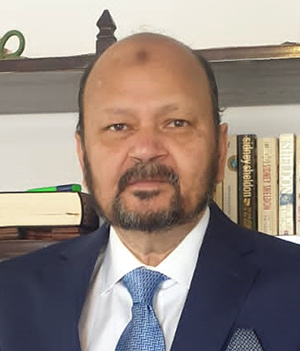As thousands of workers and supporters of the Tehreek-e-Labaaik Pakistan (TLP) threatened to stage a protest in Islamabad, claiming that the government had broken the deal they had come to, the Pakistan Tehreek-e-Insaaf (PTI) government found itself mired in yet another self-created crisis. The threat of a ‘dharna’ by the TLP last time had forced the government to concede to most of its demands, including agreeing to bring the matter of the expulsion of the French ambassador before Parliament.
While Pakistan’s political pundits continue to analyse events leading up to the TLP-PTI “agreement” in a somewhat myopic fashion, we propose examining it through the wider prism of the influence of religion in politics and governance around the world. The situation in Brazil, USA, India and many other countries gives us a clue as to why the TLP, without significant parliamentary representation, continues to wield influence. Jair Bolsonaro was elected president of Brazil in 2018 with the support of evangelical Christian voters. The number of evangelicals has more than doubled in the last 30 years, mainly at the expense of Catholics. As in the United States, the involvement of the evangelical clergy in electoral politics has bolstered right-wing organisations.
Amy Erica Smith’s Religion and Brazilian Democracy: Mobilising the People of God is a comprehensive study of the impact of religion, particularly Evangelical, Pentecostal, and Catholic congregations, on 21st century Brazilian politics. Smith’s study spans the last 15 years and analyses a multitude of data using a daring mixed method that includes several national polls, electoral outcomes at all levels of government, anthropological observations, focus groups, and individual interviews. While the author addresses presidential and federal politics extensively, she also uses the data obtained from a nine-year study of religious mobilisation in the mid-sized city of Juiz de Fora, in the state of Minas Gerais. Smith explains her qualitative analysis of the clergy and congregants’ political activity in Juiz de Fora as representative of Brazil, by citing the city’s political composition and voting patterns. Smith uses the example of an evangelical mobilisation against a front-runner mayoral candidate who openly campaigned as a lesbian in 2008 to demonstrate her thesis. Smith emphasises, throughout the book, the cultural conflicts that mobilise Brazilian religious voters to focus around “the trifecta of abortion, homosexuality, and church-state ties.”
Smith organises her text around two central principles. First, in a country where a record 30 parties earned seats in Congress in the 2018 election, religious mobilisation did not lead to partisanship. According to Smith, competition between congregations and denominations ensures that partisan fragmentation will remain the norm for the foreseeable future. Second, religion in general, and Evangelical and Pentecostal churches, boost individuals’ involvement in political discussions while undermining democracy by increasing intolerance and combativeness. According to an afterword written following Bolsonaro’s victory in October 2018, the far-right president demonstrates her point. He prefers dictatorship over the democratic process that got him elected.
It is important that Pakistani pundits examine the faith actors’ political activities, understand the congregants’ political responses to religious mobilisation, and the elected officials’ relationships with congregants who elected them, if they are to see the bigger picture. The eventual impact of the growth of evangelicals, according to Smith, remains to be seen. She, however, predicts a more positive conclusion if the clergy and their parishioners participate in electoral politics and have their convictions moderated via participation in democratic processes.
Around the world, most religious activists possess a puritanical streak that colours their electoral platforms – and subsequent methods of governance – with a moral cadence. In India, BJP’s electoral validation has brought an alternative nationalism to the fore, one based not on secular principles, but rather on the premise that Indian culture is entirely coterminous with Hindu culture. BJP’s politics betrayed a majoritarian nationalism and excludes religious minorities.
The negative aspects of faith-based politics, religious stakeholders also sometimes use moral appeal and rhetoric to advocate for economic austerity or draconian anti-corruption measures in many countries. One can only pray that Pakistani talking-heads will contemplate religion’s nuanced, multifaceted role in democracy in minute detail.

Editor, Narratives



